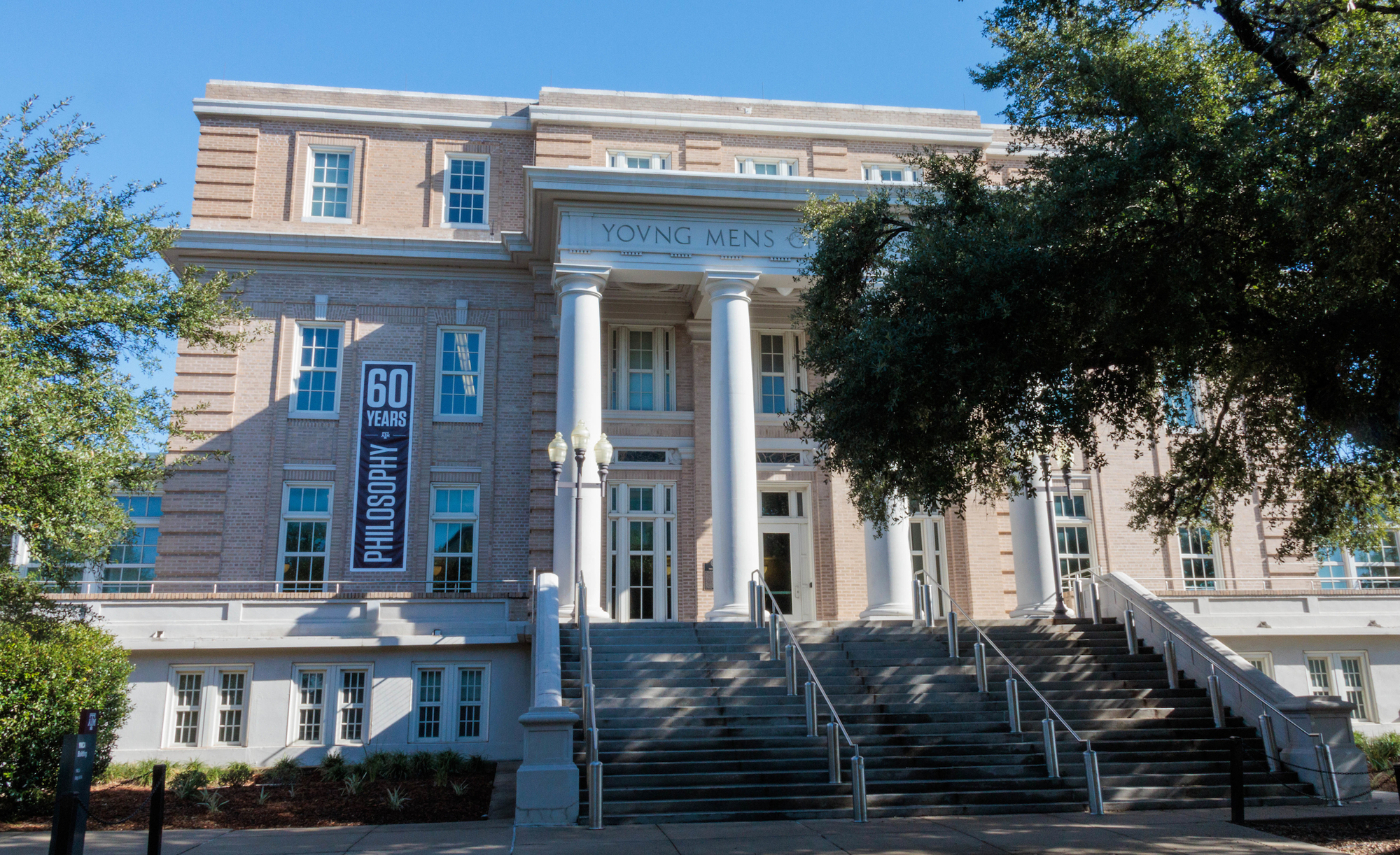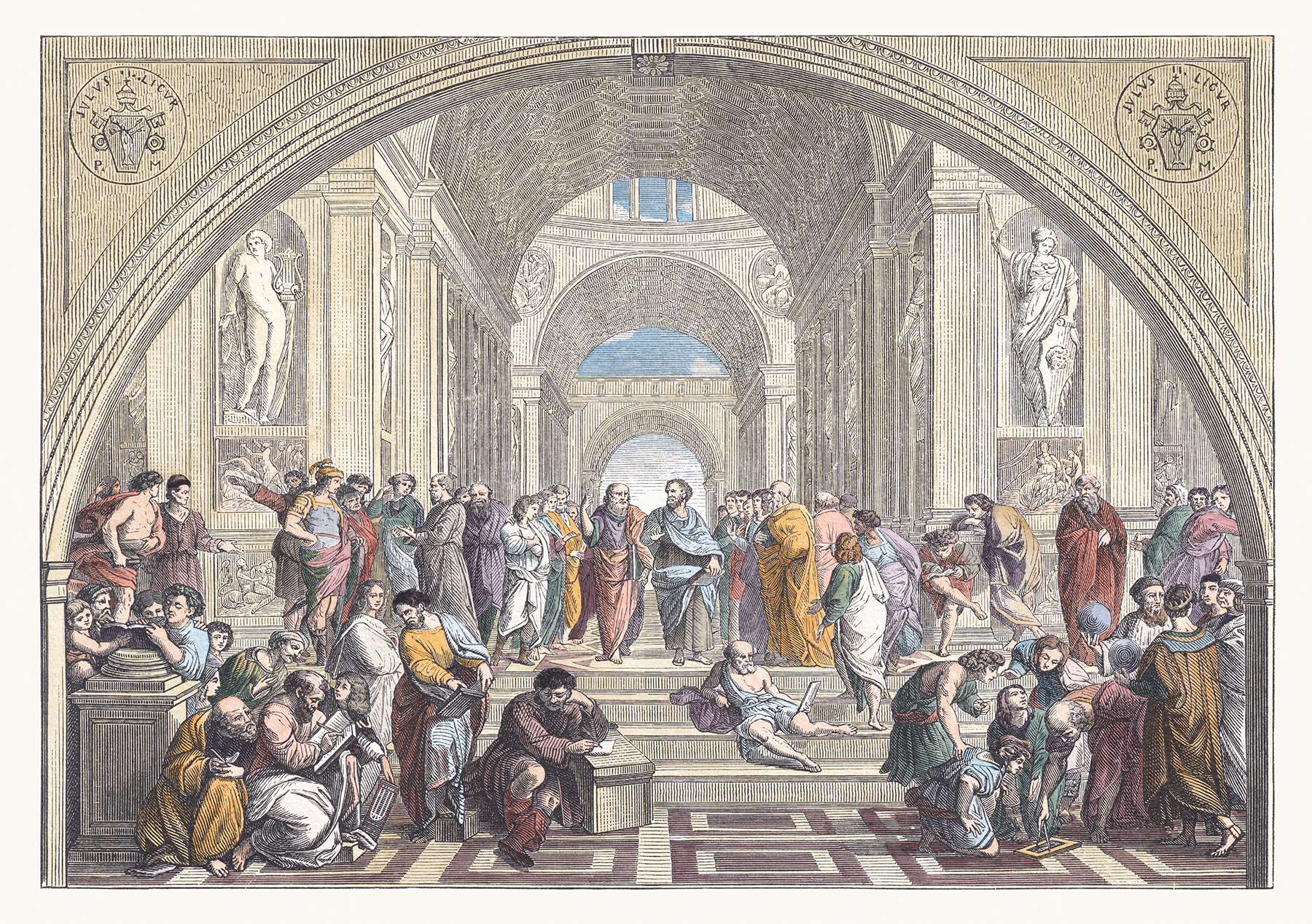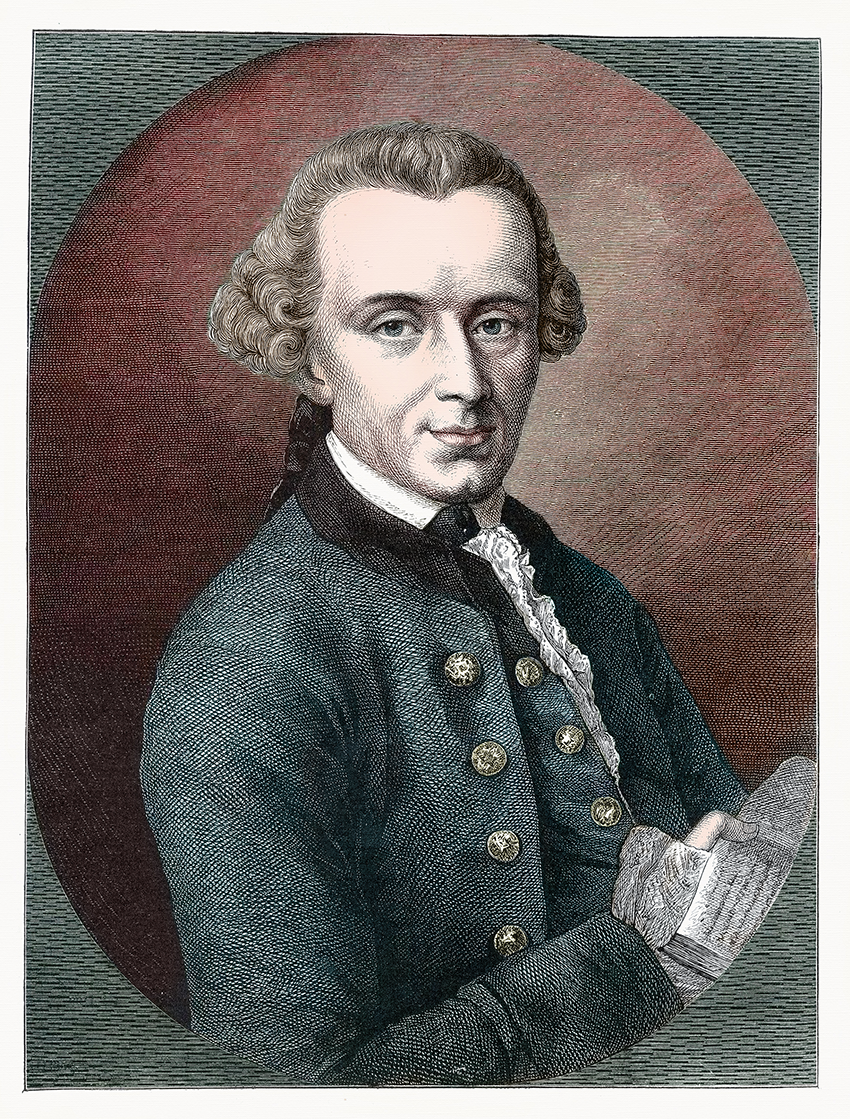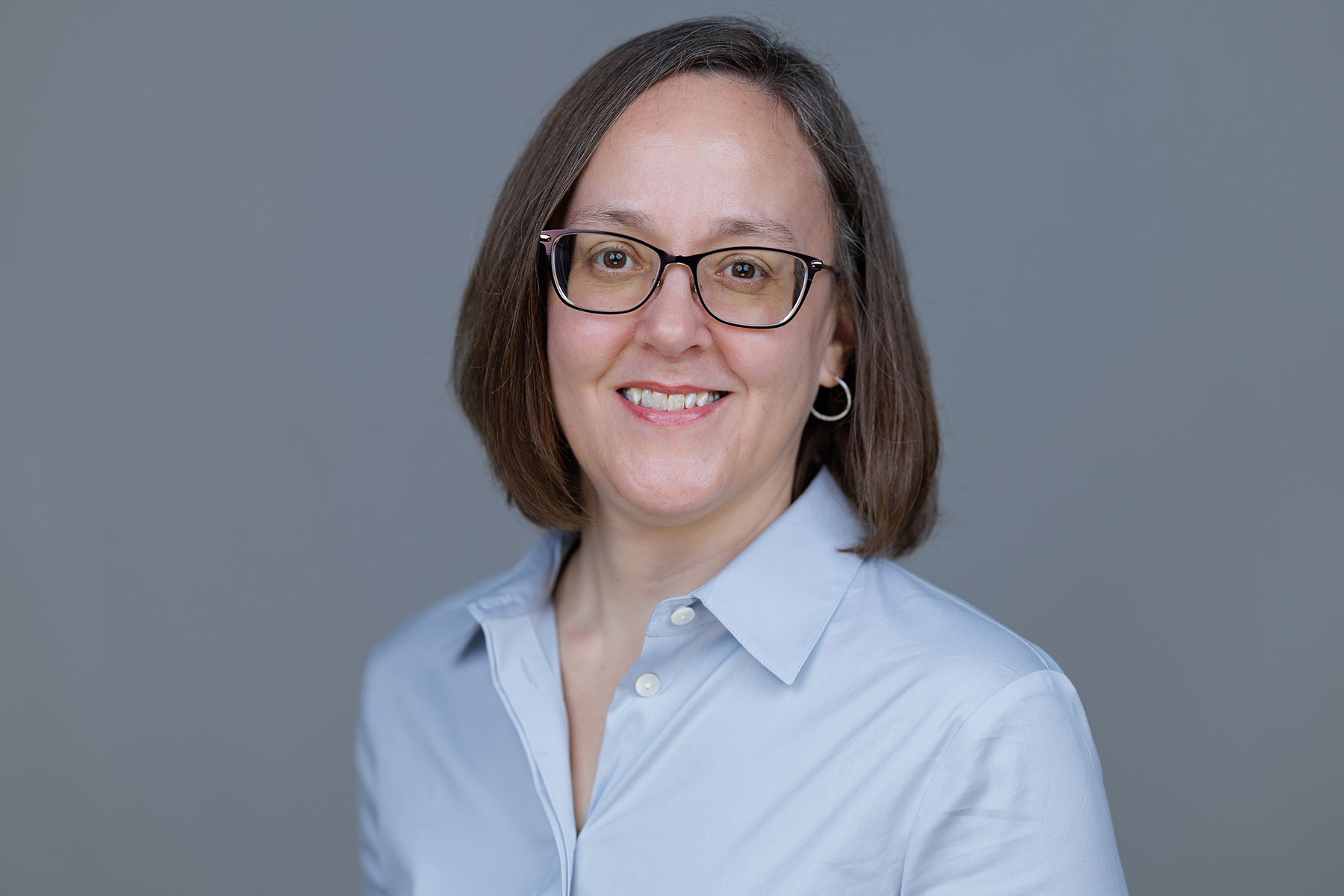
— Philosopher Immanuel Kant (1724-1804)
Known as the study of fundamental truths about human existence, the discipline of philosophy forms a concrete presence within Aggie history books. Dating back to its founding in 1964, the Department of Philosophy’s roots are more than half a century old, with the department celebrating its 60th anniversary during the 2024-2025 school year.
A celebration of its storied past and achievements, the anniversary is also a commemoration of the department’s ongoing support of life-long learning. The philosophy team—including faculty, staff and advisers—leads both undergraduate and graduate students through initiatives ranging from challenging coursework to research projects. The department boasts strengths in multiple areas of philosophy, including continental philosophy; decision theory, logic, and rationality; philosophies of the global south; and value theory. Students benefit immensely from faculty expertise in these areas, as they examine a wide array of philosophical topics, including: the nature and form of human thinking; the nature of the good; fundamental structures of political communities and society; and the nature of beauty, among many others.
The Question Of Why
As a constantly evolving field, the study of philosophy is rooted in the intractable human desire to know how and why things are the way they are. It takes up topics and issues in human life that we may not ever fully come to know.
Dr. Kristi Sweet, associate professor and head of the Department of Philosophy, became interested in the question of why during her college years.

“The first time I became invested in philosophy was when I took a class in hermeneutics, a course focused on the study of interpretation,” she said. “It helped me grasp that the most important parts of human life are not a matter of scientific truth or knowing, but instead of understanding and interpreting. In other words, although we can get at how something is, and continue to expand our understanding of it over time, our comprehension of it will always remain incomplete.”
With a background in the history of philosophy, she found that the discipline perfectly encapsulated the human desire to understand.
“What I love about philosophy is that it focuses on the most important questions of human existence,” she said. “Even in college, when I thought I would study something more concrete like history, I was always drawn to the ideas of what it means to be human, why something would happen and the broader questions of its meaning.”

A Study of Purpose
Sweet says the study of philosophy offers students the opportunity to develop core competencies in writing and thinking that will benefit them in any career path. By enhancing students' abilities to reflect on their own values, it also encourages engagement with others who have differing beliefs. In this, studying philosophy offers the opportunity for growth while promoting conversational skills with others, even if they might not agree completely.
“My work in the history of philosophy has taught me how philosophy can help us think in radical, new ways,” she said. “Some people believe philosophy is a thing of the past; what they don’t realize is that it’s an important tool to help us engage with and transform our present.”
Sweet also teaches Aggies at the graduate level about the philosophy of Immanuel Kant—a 18th century German philosopher who revolutionized the method of philosophy. Sweet focuses on his practical philosophy—his ethics, political theory and philosophy of history—as well as his work on art and beauty.
The philosophy department's faculty, currently with 21 full-time members, offers many courses, such as Ethics in a Digital Age; Philosophy of Art; Philosophy, Film and Evil; and Philosophy of the Natural Sciences.
No matter what course a student may take, however, Sweet says students learn how to disagree when they take a philosophy course. “They eventually reach an ‘aha’ moment when they realize they are a little too sure about things. That is the true virtue of philosophy, and the point at which real growing begins.”
Rooted in the Undergraduate Experience
Although the department has evolved over the years with an enhanced research curriculum and updated coursework, its commitment to prioritizing the undergraduate experience has remained steadfast.
“Our commitment and dedication to undergraduate teaching has and continues to be our highest priority,” Sweet said. “It is a core pillar of our identity, and we have had remarkable undergraduate teachers move through this department.”
Eight of the department faculty have won undergraduate teaching awards, highlighting how the undergraduate experience continues to be a central focus for the department. In addition, many faculty members serve as supervisors and mentors for undergraduate opportunities, including the Altheia Journal, the Philosophy Club and undergraduate research initiatives. These hands-on opportunities allow for a high-impact experience, as students apply what they learn in the classroom to everyday thinking.

“There is a classical idea that education in philosophy should be transformative. While students do get a specific set of skills, they also develop critical thinking and interpretation skills,” Sweet said. “For college-aged students, this is an important moment. You are trying to form your identity as an adult, and when you learn the openness philosophy can offer, it becomes a lifelong gift.”
A Universal Curriculum
The study of philosophy is beneficial for anyone, regardless of their background, major or future career.
“Any student can benefit from taking a philosophy course because it gives you the opportunity to think deeply,” Sweet said. “It reminds us that we do not always have the answers, and even when we think we do, we should remain open to questioning them.”
She highlights the department's connection to the broader mission of education, emphasizing its transformative role.
“Universities exist because we believe we can do better; we can build stronger bridges, organize ourselves better politically and improve the communities we live in, we can find cures for diseases and better feed ourselves” she said. “On the teaching side, it means we can continue to make our education transformative and enhance our ways of thinking. That is the purpose of a classical liberal arts education, to transform our thinking in an expansive way.
“Philosophy has the power to help each of us live better and do better. If there is one thing I want students and faculty to take away from our department, it is that we as humans always have room for improvement in the way we think.”

60 Years With Philosophy
Commemorating six decades of excellence, the Department of Philosophy in the College of Arts and Sciences stands as a cornerstone of critical thinking and transformative education. With a rich curriculum, vibrant undergraduate clubs, and groundbreaking research, the department continues to inspire and challenge minds. Join us this spring as we delve into a series of stories exploring the impact and legacy of philosophy at Texas A&M.

